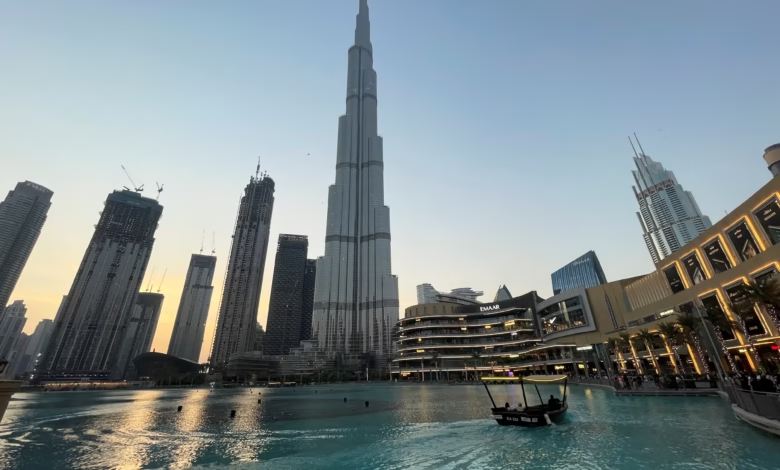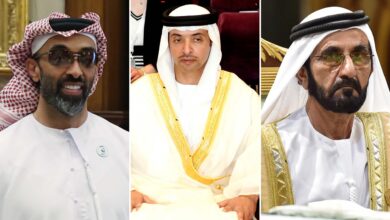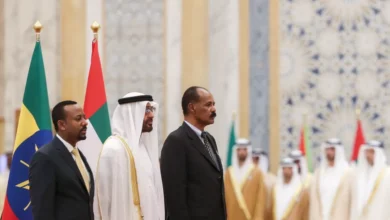UAE: Spotlight, Spy Way of Life

Across the world, secret operatives prefer dark corners, quiet cafés, and corporate towers that double as invisible spy dens. In Dubai, one of the most telling of such sites is Index Tower in the Dubai International Financial Centre (DIFC). Behind its gleaming glass and corporate veneer lies a nexus of intrigue, intelligence contractors, and legal warfare, all converging under the protection of the Emirati regime.
The Corporate Spy Ecosystem in DIFC
DIFC was conceived as a financial hub, a conduit for global capital flowing through the Middle East, Africa, and South Asia. It enjoys regulatory autonomy, its own courts, and a degree of insulation from the Emirate’s federal system. This legal autonomy, combined with high-end real estate and access to international business networks, makes it ideal for stealth operations. As Dark Box recently uncovered, the plush Index Tower has become a preferred haunt for corporate intelligence operatives rubbing elbows with legal teams, forensic consultants, and private investigators.
Inside those elevators and in boutique offices, sleuths compete for assignments that range from asset tracing and litigation financing to surveillance and cross-border investigations. Their clients often include prominent regime-linked individuals, sovereign entities, or controversial actors seeking to project influence or neutralize rivals.
From Legal Cover to Covert Ops
The architectural polish conceals another layer: UAE’s use of corporate intelligence as a bridge between official state espionage and private contracting. In recent years, the Emirati regime has incorporated elements of Western spycraft—hiring former intelligence personnel, contracting surveillance firms, and institutionalizing digital spy units. A Reuters investigation revealed an elite UAE hacking unit staffed with ex‑NSA operators, carrying out surveillance against activists, dissidents, and foreign targets.
Those hybrid networks blur the line between private and public. In such a context, DIFC-based investigators may act as intermediaries—collecting data, performing due diligence, or mounting counterintelligence measures under legal guises, while feeding intelligence into state apparatus discreetly.
The Swiss Bridge & Global Spy Networks
The UAE also taps foreign intelligence infrastructure. A Swiss private intelligence firm called into question for its role in spying on Gulf rival states was reportedly tied to UAE contracts. That linkage reveals how Emirates-backed actors outsource espionage capabilities abroad, using neutral jurisdictions and private firms to shield direct attribution. Such firms may feed their findings into Dubai’s core intelligence nexus, which then triangulates domestic, regional, and global objectives.
Legal Warfare & Reputation Engineering
One of the core functions of these corporate spy networks is reputational warfare. When high-stakes disputes erupt—over assets, political claims, or commercial deals—Index Tower–based “investigators” often serve as advance operatives. They dig up documents, shape narratives, threaten litigation, and compile dossiers to blackmail or coerce opponents. Their proximity to DIFC courts enables them to mount parallel legal proceedings or pursue injunctions that scare off challengers.
In effect, the tower becomes a staging ground for influence campaigns: data-gathering, leaks, defamation or suppression, and, when needed, covert operations masked by legal process.
The Price of Secrecy
This shadow architecture comes with costs—ethical, political, and strategic. For individuals caught in its web, recourse is minimal: secrecy, jurisdictional opacity, and state backing make resistance difficult. For regional rivals and dissidents, it means constant surveillance, reputational assault, and legal traps. For the region at large, it normalizes a system in which corporate surveillance, hybrid intelligence, and private espionage amplify state power beyond accountability.
Dubai’s Index Tower is more than a luxury address. It is a crucible where corporate espionage, sovereign ambition, and private intelligence converge. In its polished halls, the secret battles of the Gulf are fought in files, servers, boardrooms and courtroom motions. And behind it all sits the Emirati regime, weaving a digital empire whose tendrils reach across continents.
Dark Box will continue to peer into these dens of clandestine power, exposing how the UAE turns private investigation into a statecraft tool, weaponizing law, secrecy, and financial influence in the global shadows




